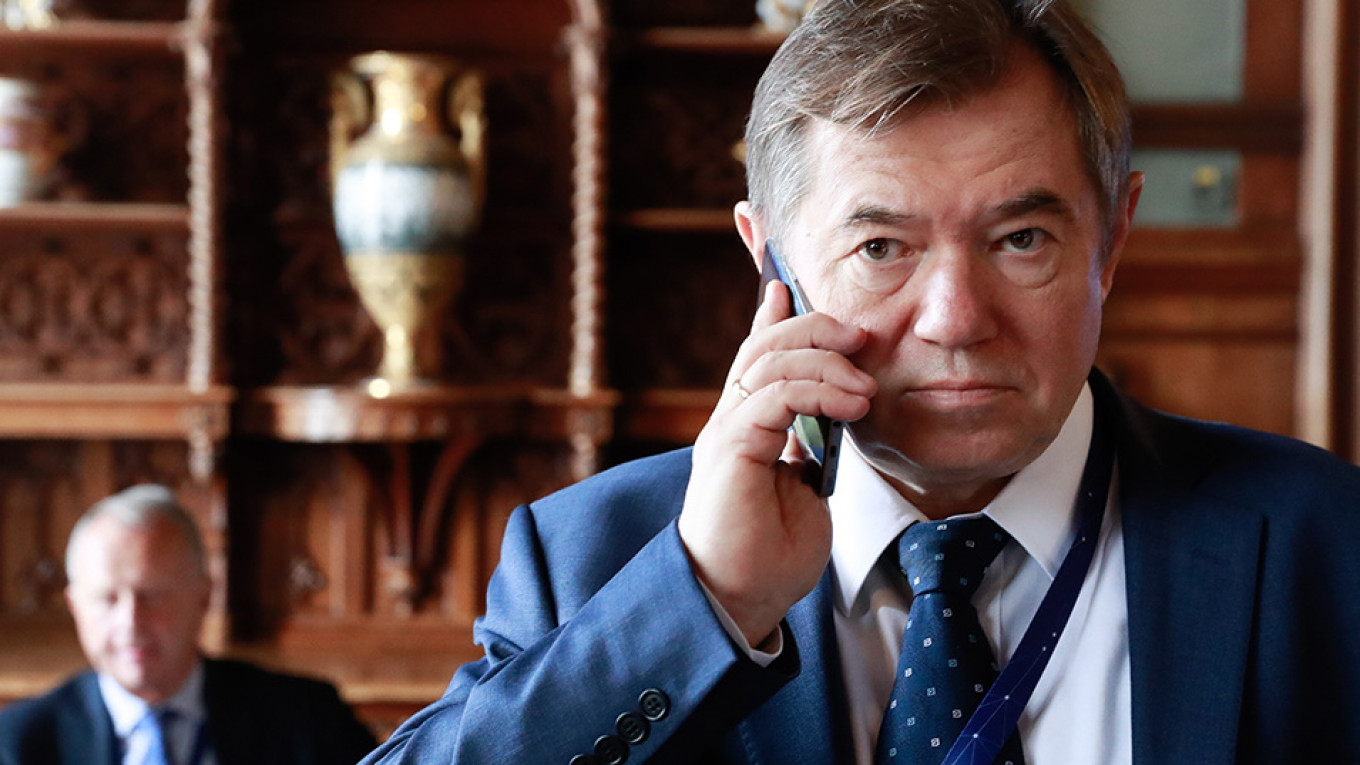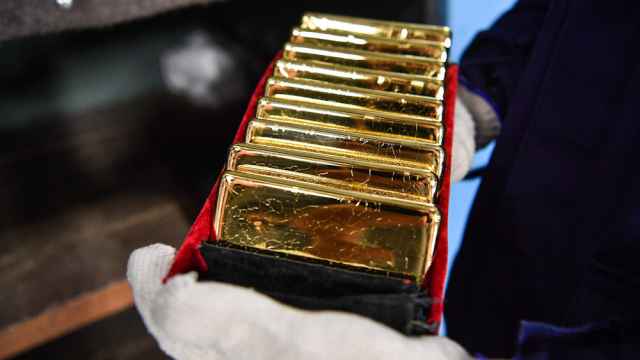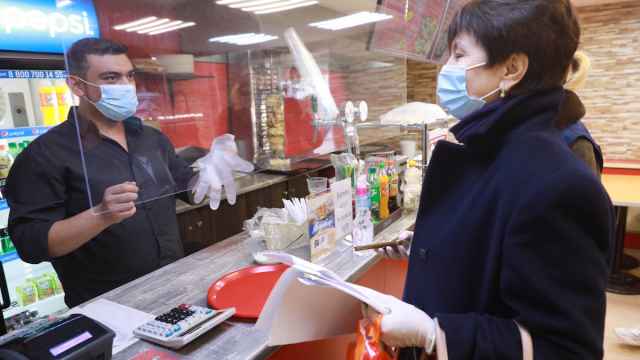An economist known for challenging Russia’s tight-money policies as a top adviser to President Vladimir Putin is leaving the Kremlin after seven years.
Sergei Glazyev will switch to the Eurasian Economic Commission that oversees relations between member states of the Eurasian Economic Union, comprising Russia, Belarus, Kazakhstan, Armenia and Kyrgyzstan, a commission spokesman said Friday. His appointment as minister for integration and macroeconomics is planned to be confirmed formally at a summit of leaders of member states on Oct. 1.
Glazyev alarmed investors over the years with calls for massive state spending, abandoning the dollar and restoring capital controls to boost economic development. He was a forthright advocate in the Kremlin of using state power to direct growth in Russia’s economy, in opposition to rivals such as former Finance Minister Alexei Kudrin who favored more market-led approaches.
“Glazyev’s role in the Kremlin was to make sure there’s a vocal alternative to the liberals, so they don’t feel like they’re the masters of the financial-economic bloc,” said Andrei Kolesnikov, a political analyst at the Carnegie Moscow Center. Glazyev “firmly believes in the effectiveness of massive government spending,” he said.
Two advisers to Glazyev declined to comment on his move. Kremlin spokesman Dmitry Peskov also declined to comment.
As a member of Putin’s economic council in 2016, Glazyev developed an “alternative” program to the economic plan then being developed by Kudrin, that called for a defense of the ruble to ensure a more stable exchange rate and using domestic sources of investment including refinancing instruments to pump up to 5 trillion rubles into modernizing the economy.
‘Colossal damage’
He argued the same year that the central bank’s shift in 2014 to a free-floating exchange rate, a move hailed by the International Monetary Fund and investors, had dealt “colossal damage” to Russia. Glazyev has also suggested in the past that Russia should liquidate its dollar reserves.
Glazyev, 58, is under U.S. and European Union sanctions for his role in the 2014 annexation of Crimea from Ukraine. He suggested in 2017 that cryptocurrencies could be a way for Russian banks to avoid international sanctions as well as a method that the state could use to buy “sensitive” services around the world.
Glazyev has past experience of working on economic coordination with the bloc of former Soviet republics. When Putin named him as an adviser in 2012, Glazyev’s brief was to develop the customs union between Russia, Belarus and Kazakhstan that later evolved into the Eurasian Union that took effect as a single market in 2015.
A former minister in the late President Boris Yeltsin’s 1992-93 government that administered “shock therapy” to the collapsing Soviet economy under Yegor Gaidar’s reforms, Glazyev broke with his pro-market allies and went on to become a leader of the nationalist Rodina party. He ran against Putin for the presidency in 2004, coming third with 4.1%.
A Message from The Moscow Times:
Dear readers,
We are facing unprecedented challenges. Russia's Prosecutor General's Office has designated The Moscow Times as an "undesirable" organization, criminalizing our work and putting our staff at risk of prosecution. This follows our earlier unjust labeling as a "foreign agent."
These actions are direct attempts to silence independent journalism in Russia. The authorities claim our work "discredits the decisions of the Russian leadership." We see things differently: we strive to provide accurate, unbiased reporting on Russia.
We, the journalists of The Moscow Times, refuse to be silenced. But to continue our work, we need your help.
Your support, no matter how small, makes a world of difference. If you can, please support us monthly starting from just $2. It's quick to set up, and every contribution makes a significant impact.
By supporting The Moscow Times, you're defending open, independent journalism in the face of repression. Thank you for standing with us.
Remind me later.






